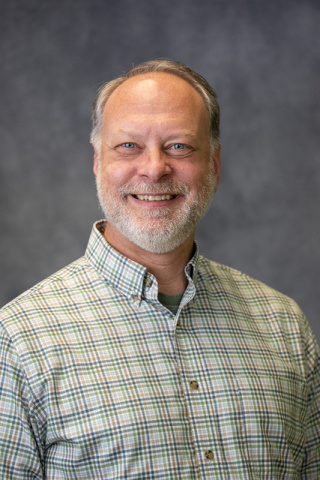Michael Liemohn
Michael Liemohn's primary research interest is quantifying charged-particle motion through space, in particular magnetospheric physics, magnetosphere-ionosphere coupling, global geospace dynamics, and magnetic storm physics. This effort includes the development and application of physics-based models used in conjunction with extensive data analysis. His papers on the partial ring current dominance during storms changed community understanding about storm dynamics, ion loss processes, and current systems in the inner magnetosphere. He also examines the Mars space environment, as well as the physics of Saturn and other planets. Professor Liemohn wrote one textbook, Data Analysis for the Geosciences (published October 2023) and edited the collection, Driving towards a more diverse space physics research community (published November 2023).
Professor Liemohn has held a number of policy-related leadership positions, including serving for 4 years as the founding Director of the University of Michigan Space Institute (2019–2023), bringing together faculty, staff, and students from across campus for interdisciplinary research and education endeavors. He served as the chair of the NASA Heliophysics Advisory Committee (2018 – 2022), as a member of the NASA Science Committee (2018 – 2022), and as co-chair of the American Geophysical Union's Partnership Task Force (2020 – 2022). Professor Liemohn also served a 6-year term as the Editor in Chief of the Journal of Geophysical Research – Space Physics (2013 – 2019), the primary archival journal in his field.
In 2020, the American Geophysical Union (AGU, Liemohn's primary scientific society) released a new strategic plan with three main goals: (1) catalyze discovery and solutions to scientific and societal challenges; (2) promote and exemplify an inclusive scientific culture; and (3) partner broadly with other organizations and sectors to address scientific and societal challenges. To address the third goal on partnerships, AGU formed a Partnership Task Force (PTF), for which Professor Liemohn was selected as one of two co-chairs. Over a year and a half, the PTF conducted inventories of current partners of AGU, developed a structure for organizing and classifying these partners, and set partnership criteria to assess their viability and acceptability. He presented the results to both the AGU Council and the AGU Board of Directors, who approved the recommendations. The flexible "partnership assessment tool" is now used by AGU senior staff.
Professor Liemohn currently teach SPACE 581: Space Policy and Management, offered every fall term.

